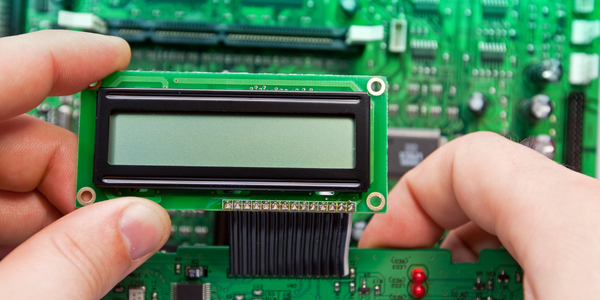Customer Company Size
Large Corporate
Region
- Asia
Country
- Japan
Product
- PTC 3D CAD
Tech Stack
- 3D CAD software
Implementation Scale
- Enterprise-wide Deployment
Impact Metrics
- Productivity Improvements
- Digital Expertise
Technology Category
- Application Infrastructure & Middleware - Data Visualization
Applicable Industries
- Electronics
Applicable Functions
- Product Research & Development
Use Cases
- Digital Twin
- Virtual Prototyping & Product Testing
Services
- Training
About The Customer
Fujitsu Peripherals, Ltd. is a manufacturer whose corporate philosophy is “Making an impression through reliable technology.” The company builds up its business on the two pillars of ubiquitous projects in design and manufacturing, and in-house ODM (Original Design Manufacturing) projects centered on heavy-duty system printers and automated manufacturing equipment. Both ways rely on abundant experience and know-how, and boast the ability to internally carry out the entire manufacturing sequence, from development to the finished product. President and Representative Director Toshimasa Okano, who started his career in product design, believes in raising the level of in-house design expertise, and is deeply committed to the introduction and application of CAD. Fujitsu Peripherals has taken this to heart, and has managed to become the first in the Fujitsu Group to implement 3D CAD.
The Challenge
Fujitsu Peripherals, a manufacturer with a corporate philosophy of “Making an impression through reliable technology,” was looking to enhance the utilization of the PTC 3D CAD that all designers had been working with in-house. The company believed that if 3D CAD software could be more deeply understood, allowing for greater levels of mastery, it could drastically improve operational efficiency. However, initial skill diagnostics revealed that while the designers had the expertise to accurately create 3D models, they had not mastered the tools, and thus could not create the 3D models efficiently. This led to the decision to implement a course of “training reinforcement.”
The Solution
Fujitsu Peripherals, in cooperation with PTC University, formulated a set of basic rules to become their in-house design standard. They analyzed their strengths and weaknesses based on the results of a detailed skill assessment initiative, and established targeted educational programs to enhance their design expertise. Through the application of on-site training and functional on-the-job training programs, they made major improvements to designer knowledge and skill. The company also implemented an eLearning program that will continually reinforce the revisions made by the company up until this point and further perfect the basic rules, fostering an increase in the skills of its designers.
Operational Impact
Quantitative Benefit

Case Study missing?
Start adding your own!
Register with your work email and create a new case study profile for your business.
Related Case Studies.

Case Study
Remote Temperature Monitoring of Perishable Goods Saves Money
RMONI was facing temperature monitoring challenges in a cold chain business. A cold chain must be established and maintained to ensure goods have been properly refrigerated during every step of the process, making temperature monitoring a critical business function. Manual registration practice can be very costly, labor intensive and prone to mistakes.

Case Study
Cloud Solution for Energy Management Platform-Schneider Electric
Schneider Electric required a cloud solution for its energy management platform to manage high computational operations, which were essential for catering to client requirements. As the business involves storage and analysis of huge amounts of data, the company also needed a convenient and scalable storage solution to facilitate operations efficiently.

Case Study
Leveraging the IoT to Gain a Competitive Edge in International Competition
Many large manufacturers in and outside Japan are competing for larger market share in the same space, expecting a growing demand for projectors in the areas of entertainment, which requires glamor and strong visual performance as well as digital signage that can attract people’s attention. “It is becoming more and more difficult to differentiate ourselves with stand-alone hardware products,” says Kazuyuki Kitagawa, Director of Service & Support at Panasonic AVC Networks. “In order for Panasonic to grow market share and overall business, it is essential for us to develop solutions that deliver significant added value.” Panasonic believes projection failure and quality deterioration should never happen. This is what and has driven them to make their projectors IoT-enabled. More specifically, Panasonic has developed a system that collects data from projectors, visualizes detailed operational statuses, and predicts issues and address them before failure occurs. Their projectors are embedded with a variety of sensors that measure power supply, voltage, video input/ output signals, intake/exhaust air temperatures, cooling fan operations, and light bulb operating time. These sensors have been used to make the projector more intelligent, automatically suspending operation when the temperature rises excessively, and automatically switching light bulbs. Although this was a great first step, Panasonic projectors were still not equipped with any capability to send the data over a network.






